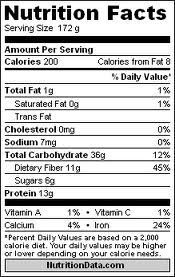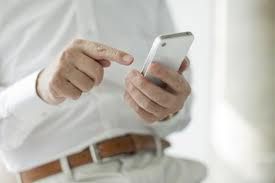Diet
Why Weight Loss Mobile Apps Aren’t Really Changing the Game
An obesity expert's view of weight loss mobile apps
Posted July 2, 2012
I will preface this post by saying that I am a clinical behavioral psychologist, obesity researcher, and I counsel patients in an outpatient weight loss clinic in a university hospital. From that perspective I am sharing my thoughts on the utility of weight loss mobile apps. Whilst I am extremely excited about the concept of weight loss mobile technologies, I am underwhelmed by the products available. Here I elucidate the weaknesses in the industry in the hopes of stimulating discussion about ways to improve the impact of this technology.
Limited in Function.

Limited in Function.


Show Me The Data. Research so far shows that mobile apps are no more effective than traditional methods of performing the same functions on reducing dietary intake or weight. Two studies showed that dietary tracking via a smartphone was no more effective at helping people eat less than dietary tracking via paper-and-pencil diaries (Acharya et al 2011; Burke et al 2012). I am in the midst of a similar study right now and so far our findings mirror these studies. Interestingly, one of the studies found that a mobile app that provided tailored advice to the user based on the data they entered was more effective than an app that did not. The meat and potatoes of behavioral modification counseling is building motivation and helping patients solve the problems that hinder their progress. I would love to see more of this in apps.
Require High Level of Motivation

Require High Level of Motivation


Market Saturation. At this point, everybody (and their cousin Vinny) has developed a weight loss mobile app. Please stop people, unless you have a real game-changing idea. The market has become so quickly saturated that the average user has a hard time knowing which application is worth trying and which was developed in Vinny’s basement. A single bad experience with a crappy app discourages users from trying another. Nobody wants to go through the trouble of entering an entire day’s worth of food intake only to discover that they can’t figure out the next step or that desired functions are missing. Word of mouth will eventually thin the herd, but in the meantime, market saturation is hindering progress as usability (not features) is the only significant difference between apps.

Inaccurate Information. Nutrition and energy expenditure databases in mobile apps are often inaccurate. Most do not provide the source of their databases making it impossible to evaluate the veracity of the information. Just as a quickie test right now, I entered grilled cheese on wheat into 3 apps in iTunes top 50 for health and came up with a range of 180-456 calories. The findings for exercise were similar. Golfing with a cart for 1 hour turned up calories ranging from 198-274. This is not a small issue because lack of awareness about how much one is consuming is a significant weight loss challenge. We all have a tough time confronting how much we eat and how little we burn. We are more apt to believe sources that tell us what we want to hear. Information that reinforces our biases does more harm than good. I hope that companies will invest in the most accurate information available.
Social Network Is An Afterthought. Mobile apps that connect users via social networks will be more effective than those that do not to the extent that users utilize that function. Unfortunately the social network feature (in the few apps that provide them) seems like an afterthought. Users will only connect with one another if they happen to have another friend using the app, but this will keep the social network small and ineffective. I would love to see apps do much more to link users. For example, users who have common interests and/or characteristics could be suggested to one another (just like Twitter does). Users tightly connected socially will not only use the app longer but will probably lose more weight and keep it off longer.


Rely On User Data Entry. My wish for the very near future is that sensing technology is developed that reduces the reliance on user data entry for diet. We have made this progress in physical activity tracking via GPS and accelerometery, but we remain 100% reliant on the user for diet tracking. Even if not the actual macronutrient content of diet, sensors that could detect the mere act of eating could significantly advance mobile technology for weight loss by providing opportunities to insert mini-interventions at the outset of an eating episode.
I am not suggesting that weight loss mobile apps aren't helpful for users, there are plenty of anecdotes of highly successful users. However, this generation of apps is not advancing the science of behavioral weight loss when mobile technology is certainly advanced enough to be doing so. I can't wait to see the app that actually does.
For more posts on the science of weight loss, please visit Dr. Pagoto's main blog home at www.FUdiet.com.




